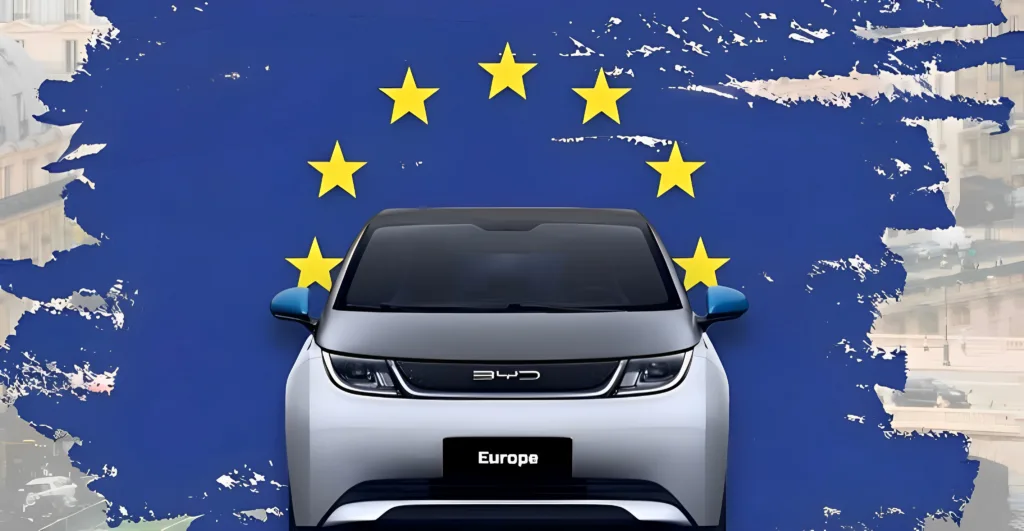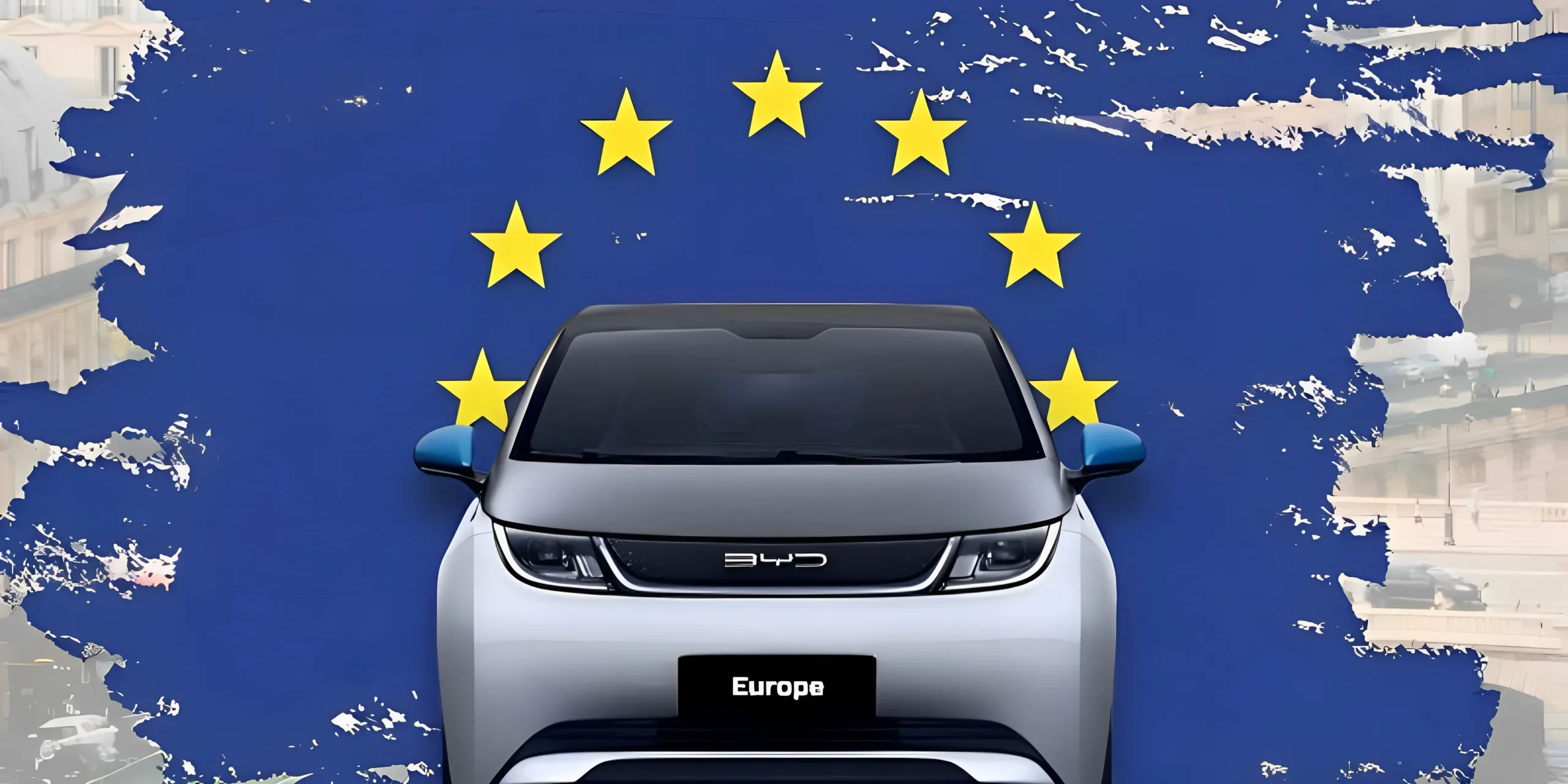How Hungary’s EV investment raises eyebrows across Europe

Source : CarNewsChina.com
In a shocking turn of events, Hungary, a member of the European Union (EU), has set the stage for potential economic turmoil by endorsing a strategic alliance with China’s electric vehicle (EV) manufacturer BYD (Build Your Dreams).
As Prime Minister Orbán returns from Beijing, the revelation that Hungary will subsidize BYD’s European car factory with EU funds sends shockwaves through the continent. Let’s explore the controversial pact, exposing the implications for European car manufacturers and the blatant betrayal of EU taxpayers.
The Hungarian government’s commitment to allocate a substantial portion of Hungary’s EU funds for BYD’s benefit is nothing short of treason.
BYD, once a humble rechargeable battery manufacturer founded in 1995 by Wang Chuanfu, has transformed into a multifaceted Chinese conglomerate. Its expansion into automotive manufacturing, renewable energy, electronics, and beyond has positioned it as a formidable player on the global stage. However, BYD’s ascent has not been without controversy, especially as it positions itself to potentially surpass industry titan Tesla in global revenue in 2024.
The heart of the storm lies in the substantial subsidies BYD receives from the Chinese government. Reports indicate that these subsidies play a pivotal role in artificially reducing the prices of BYD’s electric vehicles, unfairly tilting the playing field in their favor. This distorted competition not only threatens the success of other electric vehicle manufacturers but raises serious questions about fairness in a rapidly evolving industry.
Hungary’s brazen decision to subsidize BYD’s electric vehicle production plant with EU funds is a betrayal of the EU interests. While cloaked in economic motives, this move transcends the automotive industry, revealing a calculated alignment of economic and political interests. The Hungarian government’s commitment to allocate a substantial portion of Hungary’s EU funds, specifically €240 million from Hungary’s REPowerEU funds, for BYD’s benefit is nothing short of treason.
Join the Eurobeat!
The pulse of Europe, delivered daily.
Essential news, right in your inbox. Join the conversation today.
Subscribe now!
This controversial strategy involves leveraging EU funds not merely to support BYD’s market dominance within Hungary but also to expedite their ascendancy in the broader EU market. As the Hungarian government secretly brokers a deal that threatens the market share of European car manufacturers, the EU and its taxpayers find themselves unwittingly shouldering the consequences of this strategic betrayal.
Beyond the veneer of economic considerations, Hungary’s Prime Minister Viktor Orbán plays a dangerous political game. This maneuver to cozy up to China, while sacrificing relations with the EU and most member countries, raises questions about Orbán’s true motives. This decision further strains Hungary’s already chilly relationship with the EU. As the EU strives to position itself as a leader in sustainable technologies, Hungary’s move jeopardizes the broader competitiveness of European EV manufacturers.
The prospect of Hungary becoming even more dependent on China raises critical concerns. As seen with the historical energy dependence on Russian gas, such reliance can quickly become a geopolitical liability. Hungary’s vulnerability to potential blackmail or exploitation in times of tension adds a layer of risk to this unholy alliance.
The subsidies pouring into BYD from both the Chinese government and Hungary are a blatant assault on fair competition within the EU. European manufacturers, already grappling with the challenges posed by BYD’s lower-priced electric vehicles, find themselves on the brink of an existential threat that could cripple the growth of the European electric vehicle industry.
The EU’s commitment to fair play and its aspiration to lead in sustainable technologies now teeter on the edge of compromise.
In the face of this audacious maneuver by Hungary, the EU stands at a crossroads. The betrayal of EU taxpayers and the blatant distortion of fair competition demand not just attention but swift and immediate action. The European Commission’s investigations into BYD’s subsidies must be more than a mere inquiry; they must result in resolute measures that fiercely protect the interests of European EV manufacturers and the EU as a whole.
The EU’s commitment to fair play and its aspiration to lead in sustainable technologies now teeter on the edge of compromise. The alliance formed by Hungary and BYD challenges the very fabric of European unity and principles, as well as its overall foreign policy goal of ensuring a level playing field for Chinese companies. Forward Europe believes that the EU must not only act swiftly to rectify this situation but must also hold accountable those who seek to undermine the integrity of our shared values and our foreign policy goals.
The European Commission must take steps to wield its regulatory power to ensure that Hungary’s reckless dance with BYD does not become a dark chapter in the history of European solidarity. This is a key moment to demand not just accountability, but a commitment from the EU to reinforce its foundations, reminding all member states that betrayal of our collective principles will not be tolerated.
As the battle for fair play unfolds, Forward Europe pledges to be at the forefront, championing the cause of a truly competitive and principled European electric vehicle industry, standing up for the interests of EU taxpayers, and for a united Europe that stands tall against those who seek to compromise its integrity.
Join the Movement for a Stronger Europe
Please take a moment to sign up for our weekly newsletter and stay informed about the latest developments in the fight for a sovereign, federal Europe.
Together, we can make a difference.
Subscribe now!

